The importance of meaningful access to information
IFLA
Session 380
It is impossible to imagine a society that is able to deliver on the Sustainable Development Goals that is not an informed society. The right - and imperative - of access to information, as set out in WSIS Action Line C3 is therefore a precondition of broader policy success.
Yet we face two fundamental and connected challenges. Firstly, despite the inclusion of an action line, we are still far from having a coherent and comprehensive approach to delivering this access in a way that works for all, and secondly, that as a result, the potential of access to information accelerate development is not being realised.
This workshop therefore works to:
- reiterate the diversity of ways in which meaningful internet access (i.e. including but also going beyond simple connectivity) enables access to information as set out in WSIS Action Line 3
- assess in broad terms where we are now
- kick-start a process of collaborative reflection among actors working to make a reality of this right as a means of delivering development
It will open with a presentation of the progress we have made globally and regionally on different aspects of meaningful access to information, through the Development and Access to Information Regional Reports prepared by the Technology and Social Change Group at the University of Washington (United States).
Subsequently, it will share short vignettes about progress made, and still to be made, in the fields of access to information for science (Jeannette Frey, University of Lausanne (Switzerland)), democracy (Nerisa Kamar, Information Africa (Kenya)) and broader culture and knowledge (David Ramirez-Ordonez, Fundacion Conector (Colombia). Each will also set out their ideas on the practical steps to achieve the goals of Action Line C3 by 2035.
Finally, Xianhong Hu (UNESCO) will connect the issues discussed with the ROAM-X principles and associated Internet Universality Indicators prepared by UNESCO.
Participants will come away with a stronger understanding of the importance of addressing access to information in a coherent way, as well as insights into key current issues to be addressed from a thematic (SDG-linked) perspective. In turn, they will have fed in at the beginning of a process to define what access to information through the internet should look like by 2035.
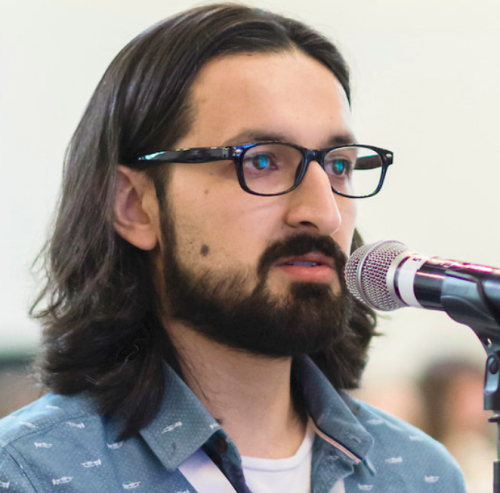
David Ramírez-Ordóñez is a doctoral student of Information and Knowledge Society at Open University of Catalonia (Barcelona), member of the project Where Are the Women in Wikipedia - WAWW and Women and Wikipedia. Master in Education on the stream Education for social and political knowledge and bachelor in Library and Information Science from the Pontificia Universidad Javeriana (Bogotá). Works on digital projects on Internet since 2005 about access to information, internet governance, copyright, libraries and digital storytelling. Creator of the Colombian public domain calculator an award winning thesis, Bibliotecarios al Senado (Librarians to the Senate) an international librarian advocacy group whom changed the copyright law in Colombia for libraries, archives and museums. Was selected on 2016 by IFLA as one of the 9 worldwide leaders to participate as associate in the Leaders Programme for his achievements in advocacy for libraries.
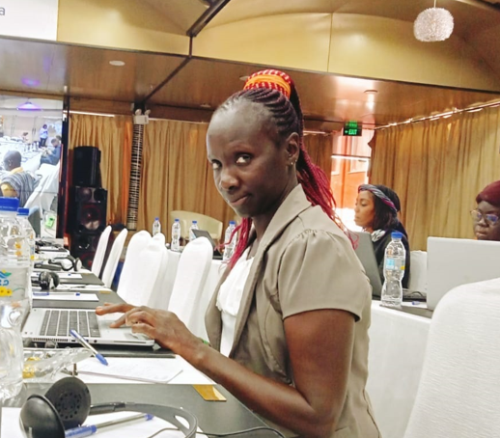
Nerisa Kamar, Project Coordinator at Information Africa Organization (IAO), Kenya is an accomplished Knowledge Management Strategist with 15+ years' experience in knowledge management, records management, librarianship, and mentorship. She oversees all projects including the successful monthly e-workshops “Africa Knowledge Management Transformative Caravan” that started in July 2020 with 4 countries in participation and now at 32 countries with over 1000 participants to date. She is the contact person for IAO to the Governing Body of the United Nations of Environment Programme (UN Environment) upon accreditation of IAO as an observer.
Prior, she served for 4 years as the Assistant Librarian, UN Habitat (Nairobi); and early as a Research Librarian at Egerton University. She served and chaired internal committees at both institutions.
Previously, Nerisa served as the interim Chapter President of the Special Library Association, Sub- Saharan Africa Chapter; 2 term Standing Committee member of Government Information and Official Publication Section of IFLA; and Member of the Kenya Library Association.
She has attended and presented papers at International, Regional and National Conferences and workshops. She has published articles and a book chapter.
Nerisa holds MSc in Information Science from Kenyatta University and a BSc in Information Sciences from Moi University. In addition, she has undertaken certificate courses in Knowledge Management and related fields.
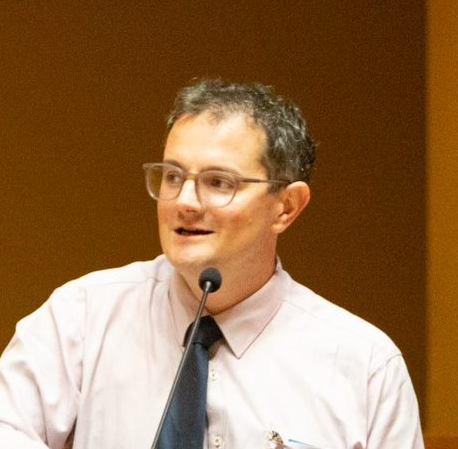
Stephen is Director, Policy and Advocacy at the International Federation of Library Associations and Institutions, and has worked for IFLA since 2016. He works with a team focused both on raising awareness of and support for the role of libraries in international fora, and supporting IFLA’s members in strengthening their own advocacy. The team works on copyright, sustainable development, human rights, culture, heritage, and internet governance. Stephen previously worked at the British Embassy in Paris and the UK Permanent Delegation to the OECD. He is a graduate of the University of Wales, Aberystwyth and the College of Europe.
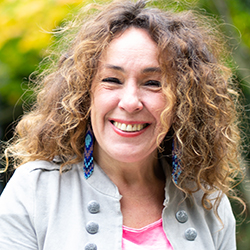
Maria is a Principal Research Scientist at the Technology & Social Change Group of the University of Washington’s Information School. Experienced in conducting multi-country studies that span diverse geographic regions, much of her research focuses on the appropriation of information and communication technologies (ICTs) to catalyze social change, specifically in communities facing social, political, and economic challenges. Keenly interested in the role of ICTs in social movements, youth employability, and skill development, Maria has worked closely with civil society organizations, NGOs, public libraries, and development funders to conduct participatory research that results in actionable recommendations for policy and practice. Recent examples of her research include the role of Massive Open Online Courses (MOOCs) in advancing youth employability in Colombia, the Philippines, and South Africa; employability of migrant women and e-skills in the European Union; and youth movements, ICTs, and the struggle for democracy in Egypt’s Arab Spring. Maria is currently leading a multi-year research effort focusing on the role of access to information in advancing the Sustainable Development Goals (SDGs). She holds a Ph.D. in Communications from the University of Washington and a Masters in International Relations from the University of Chicago.
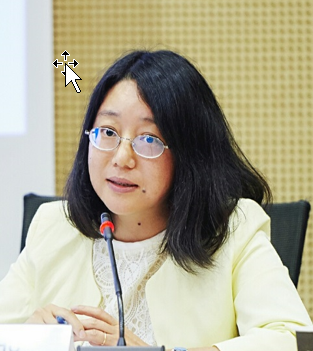
Dr. Xianhong Hu, UNESCO’s Programme Specialist at the Sector of Communication and Information since 2006.
She serves on the Secretariat of UNESCO’s Intergovernmental Program of Information for All (IFAP) and leads UNESCO project of Internet Universality R.O.A.M principles (Rights, Openness, Accessibility, Multi-stakeholder) indicators.
She is an affiliate and alumni of Harvard University Berkman Klein Center for Internet and Society.
Her expertise and responsibilities are in the areas of freedom of expression, access to information, privacy, journalism, media development, Internet governance, digital transformation and AI governance. She has followed the UN led processes of the World Summit of the Information Society (WSIS) and Internet Governance Forum (IGF). Her policy work relates to apply ROAM principles to govern the Artificial Intelligence and other emerging technologies, through her recent co-authored UNESCO study Steering AI and Advanced ICTs for Knowledge Societies: A ROAM Perspective’.
She initiated UNESCO Series Publication on Internet Freedom which has captured the complex dynamics of global Internet governance by studying policy issues of online freedom of expression, privacy, Internet intermediaries, digital safety, Artificial Intelligence, etc. She has conducted UNESCO Series Publication on investigative journalism including “Story-Based Enquiry: A Training Manual for Investigative Journalism” and “Global Casebook of Investigative Journalism”. She received a Ph.D from School of Journalism and Communication at Peking University in China in 2007.
x.hu@unesco.org
WEBSITE
https://en.unesco.org/internet-universality-indicators
https://en.unesco.org/programme/ifap
TWITTER : @HuXianhong
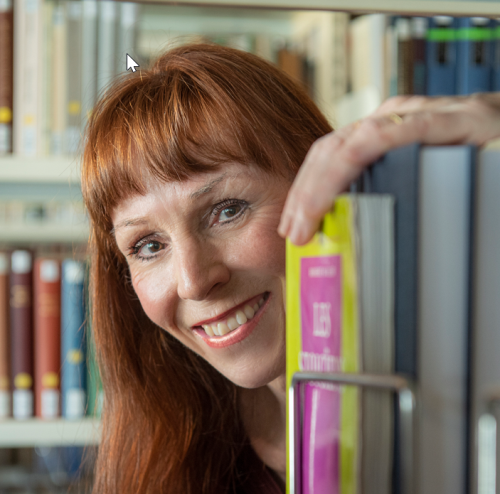
Born April 13, 1962, in Kirchberg, BE, Switzerland. Studied Ancient History, Archaeology and Egyptology at University of Fribourg, Switzerland, then worked in the field of academic publishing at Redaction LIMC (Lexicon Iconographicum Mythologiae Classicae) in Basel. 1992-1998, Head of Photographic Collection of the Swiss national museum in Zurich, first experiences in digitization of photographic collections. 1998-2002, Head of the Federal Archive for Historic Monuments in Bern, where she leads other digitization projects of photographic collections. 2002-2004, Head of Information & Communication in the private sector and in parallel studies of Computer Science and Mathematics at University of Fribourg. 2004-2008 Head of Journals and E-Resources at BCU Lausanne. Director of BCU Lausanne since 2008, member of the Board of SWITCH since 2016, President of Renouvaud libraries network since 2016, President of LIBER from 2018 until 2022, member of the EOSC Executive Board in 2020, member of European Division of IFLA since 2021.
-
 C3. Access to information and knowledge
C3. Access to information and knowledge
-
 C7. ICT applications: benefits in all aspects of life — E-government
C7. ICT applications: benefits in all aspects of life — E-government
-
 C7. ICT applications: benefits in all aspects of life — E-science
C7. ICT applications: benefits in all aspects of life — E-science
The session focuses strongly on Action Line C3, and its role as a cornerstone of progress elsewhere, including in particular science, democracy and culture (C7). Ahead of WSIS+20, it looks to reassess what has been achieved, and what more may be needed in order to succeed over the next period of WSIS action.
-
 Goal 9: Build resilient infrastructure, promote sustainable industrialization and foster innovation
Goal 9: Build resilient infrastructure, promote sustainable industrialization and foster innovation
-
 Goal 11: Make cities inclusive, safe, resilient and sustainable
Goal 11: Make cities inclusive, safe, resilient and sustainable
-
 Goal 16: Promote just, peaceful and inclusive societies
Goal 16: Promote just, peaceful and inclusive societies
IFLA is strongly engaged in the UN 2030 Agenda, and is preparing inputs for this year's High-Level Political Forum and SDG Summit. Through this, we emphasise the importance of access to information, understood in its broadest sense (in line with WSIS Action Line C3), as a driver of development.